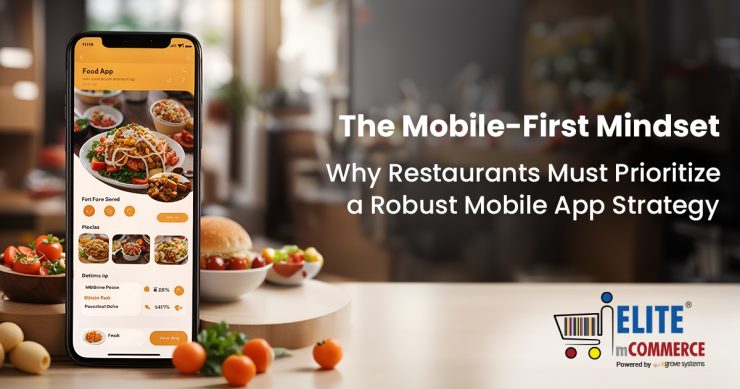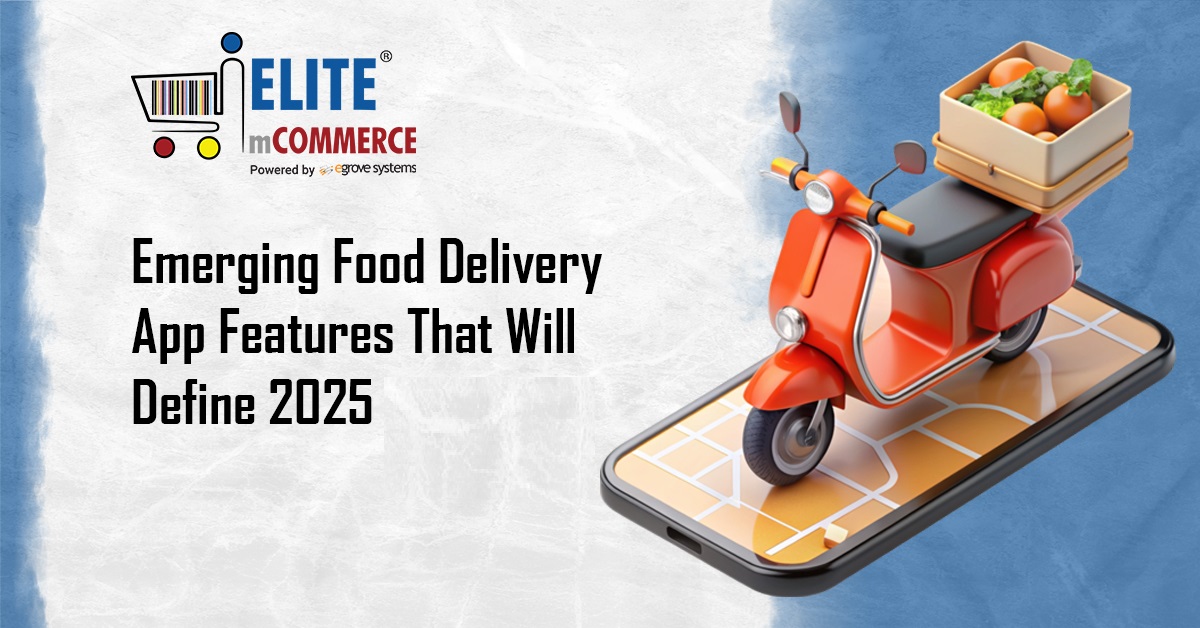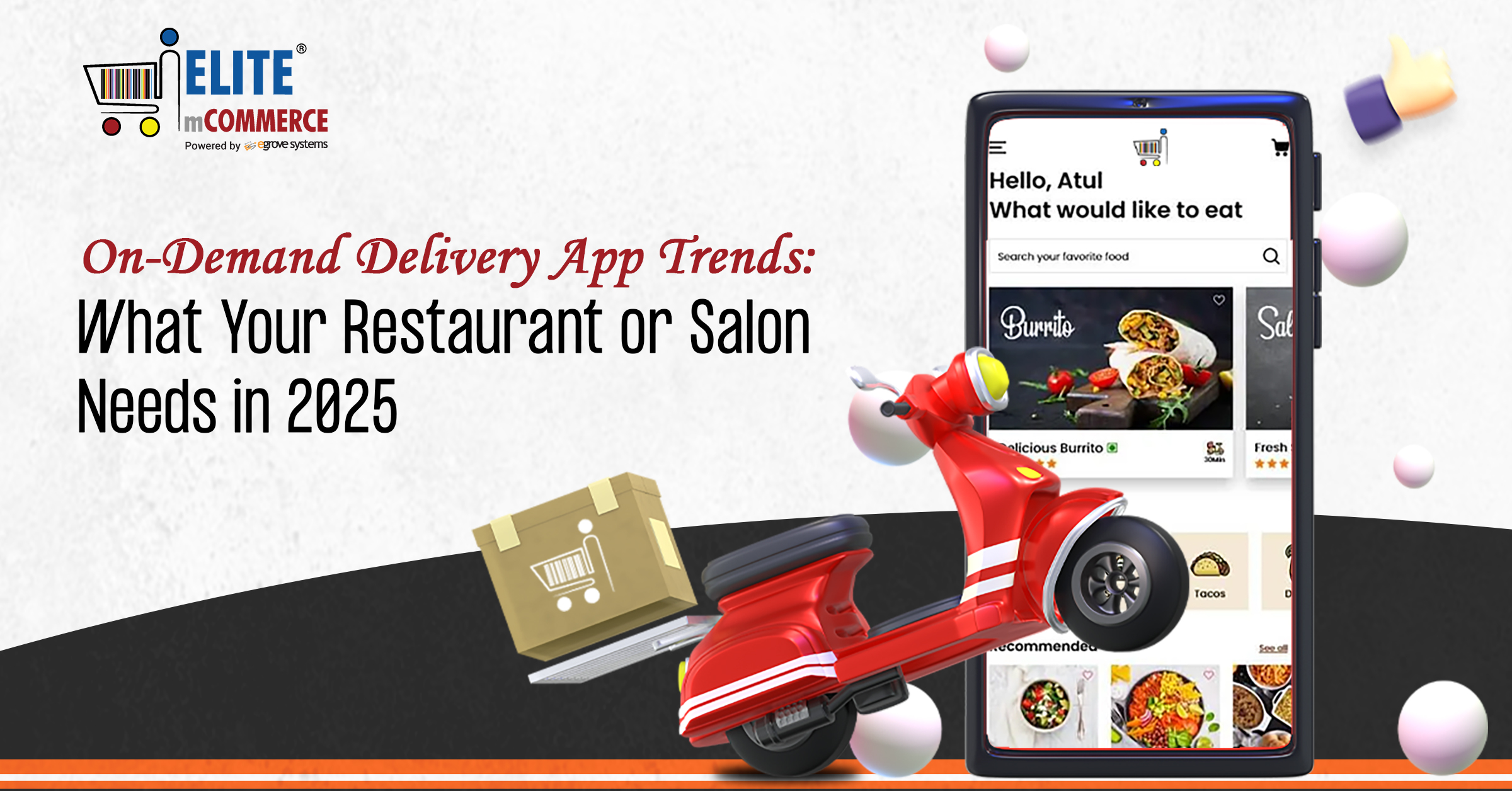In today’s digital landscape, where smartphones have become an extension of our daily lives, the restaurant industry can no longer afford to overlook the importance of a mobile-first strategy. The proliferation of mobile devices and the evolving dining habits of customers have created a paradigm shift that requires restaurateurs to rethink their approach to technology and customer engagement.
Embracing the mobile-first mindset is no longer a luxury but a necessity for restaurants looking to stay competitive and meet the expectations of the modern consumer. Let’s explore why a robust mobile app strategy should be a top priority for restaurants in the 21st century.
The Rise of the Mobile-Savvy Diner
Due to the widespread adoption of smartphones, the way people find, interact with, and patronize restaurants has undergone a significant transformation. According to a recent study, 60% of diners use their mobile devices to search for and select restaurants, and 40% of them place food orders directly through mobile apps.
This shift in consumer behavior has profound implications for the restaurant industry. Customers now expect a seamless, mobile-optimized experience that allows them to quickly and conveniently access menus, make reservations, place orders, and engage with their favorite establishments. Restaurants that fail to cater to these mobile-savvy diners risk losing out to competitors who have prioritized a mobile-first approach.
Moreover, the ubiquity of smartphones has given rise to a new generation of “digital natives” who have grown up with mobile technology as an integral part of their lives. These tech-savvy consumers, often millennials and Gen Z, have become increasingly influential in the dining landscape, and they demand a level of digital sophistication that traditional restaurants may struggle to provide.
Enhancing the customer experience
A well-designed mobile app can significantly enhance the customer experience, leading to increased loyalty, repeat business, and positive word-of-mouth. By integrating features such as online ordering, table reservations, loyalty programs, and personalized recommendations, restaurants can create a tailored and frictionless experience for their customers.
Furthermore, mobile apps offer valuable opportunities for restaurants to engage with their patrons in real time, such as through push notifications for special offers, event updates, or even table-ready alerts. This level of personalization and responsiveness can foster a stronger emotional connection between the customer and the brand, ultimately driving customer satisfaction and retention.
One key aspect of enhancing the customer experience through a mobile app is the ability to streamline the ordering and payment process. By allowing customers to place orders and make payments directly through the app, restaurants can eliminate the need for physical interactions, reduce wait times, and provide a more seamless and convenient experience. This is particularly important in the post-pandemic landscape, where contactless and cashless transactions have become increasingly prevalent.
Optimizing Operations and Efficiency
Beyond enhancing the customer experience, a mobile app can also streamline a restaurant’s internal operations and improve overall efficiency. Features like online ordering, payments, and inventory management can help reduce manual processes, minimize errors, and free up staff to focus on providing exceptional service.
Additionally, mobile apps can integrate with a restaurant’s existing point-of-sale (POS) system, enabling seamless data flow and real-time tracking of sales, inventory, and customer behavior. This data-driven approach can provide valuable insights that help restaurateurs make informed decisions, optimize workflows, and ultimately boost profitability.
For example, by analyzing customer ordering patterns and preferences through the mobile app, restaurants can better forecast inventory needs, adjust menu offerings, and optimize staffing levels to meet demand. This level of operational efficiency can result in significant cost savings and improved profit margins for the business.
Unlocking valuable customer insights
One of the greatest benefits of a mobile app is the wealth of customer data it can provide. By collecting and analyzing user behavior, preferences, and feedback through the app, restaurants can gain a deep understanding of their target audience, enabling them to tailor their offerings and marketing strategies accordingly.
This data-driven approach allows restaurateurs to make more informed decisions, whether it’s optimizing menu items, adjusting pricing, or developing targeted marketing campaigns. Furthermore, the ability to segment and target specific user groups based on their in-app activities can lead to more personalized promotions and higher conversion rates.
The insights gleaned from a mobile app can also inform a restaurant’s overall business strategy. By understanding customer preferences, pain points, and dining habits, restaurateurs can identify new opportunities for growth, such as expanding into new menu categories, opening additional locations, or launching complementary services.
Additionally, the customer feedback and reviews captured through the mobile app can provide valuable real-time feedback that helps restaurants address issues, make improvements, and maintain a positive reputation among their patrons.
Staying Ahead of the Competition
A robust mobile app strategy can provide a significant competitive edge in the highly competitive restaurant industry, where customer loyalty can be fickle. By offering a seamless, convenient, and personalized mobile experience, restaurants can differentiate themselves from their competitors and become the go-to choice for tech-savvy diners.
Moreover, a well-executed mobile app can serve as a platform for innovative features and services that can set a restaurant apart from the crowd. From virtual waitlists and contactless payments to augmented reality-powered menu exploration, a mobile-first mindset empowers restaurants to stay ahead of the curve and consistently deliver unique value to their customers.
By leveraging the capabilities of a mobile app, restaurants can also stay agile and responsive to changing market conditions and consumer preferences. For example, during the COVID-19 pandemic, many restaurants that had a strong mobile app presence were better equipped to adapt to the increased demand for online ordering, curbside pickup, and delivery services.
Adapting to a Post-Pandemic Landscape
The COVID-19 pandemic has accelerated the need for restaurants to embrace digital transformation, particularly in the realm of mobile technology. With the increased emphasis on contactless experiences, curbside pickup, and delivery, a mobile app has become a critical tool for restaurants to adapt to the changing landscape and meet the evolving needs of their customers.
By providing features such as online ordering, contactless payment, and real-time order tracking, a mobile app can help restaurants navigate the challenges posed by the pandemic and position themselves for long-term success. Furthermore, the data and insights gathered through the app can inform strategic decisions, enabling restaurants to optimize their operations and better serve their customers in a post-pandemic world.
Looking ahead, a mobile-first mindset will be essential for restaurants to remain competitive and resilient in the face of future disruptions. As consumer behavior and expectations continue to evolve, a robust mobile app strategy will be a key differentiator for restaurants that want to stay relevant and maintain a strong connection with their customer base.
Embracing a mobile-first mindset
In conclusion, the mobile-first mindset is no longer a luxury but a necessity for restaurants that aspire to thrive in the digital age. By prioritizing a robust mobile app strategy, restaurateurs can enhance the customer experience, optimize their operations, unlock valuable data insights, and stay ahead of the competition.
To effectively implement a mobile-first strategy, restaurants must be willing to invest in the development and ongoing maintenance of a high-quality mobile app. This may involve partnering with a reputable mobile app development agency or building an in-house team with the necessary expertise. Additionally, it’s crucial to continuously evaluate and iterate the app based on user feedback and changing market trends to ensure its long-term relevance and effectiveness.
The restaurant industry is at a critical juncture, and those who embrace the mobile-first mindset will be well-positioned to adapt, innovate, and succeed in the years to come. By leveraging the power of mobile technology, restaurateurs can create a seamless, personalized, and engaging experience that keeps their customers coming back time and time again.
Remember, the mobile-first mindset is not just about having a mobile app; it’s about a fundamental shift in how restaurants approach customer engagement, operations, and long-term strategic planning. By making mobile a central component of their business strategy, restaurants can stay ahead of the curve, meet the evolving needs of their customers, and thrive in the digital era.









Add comment